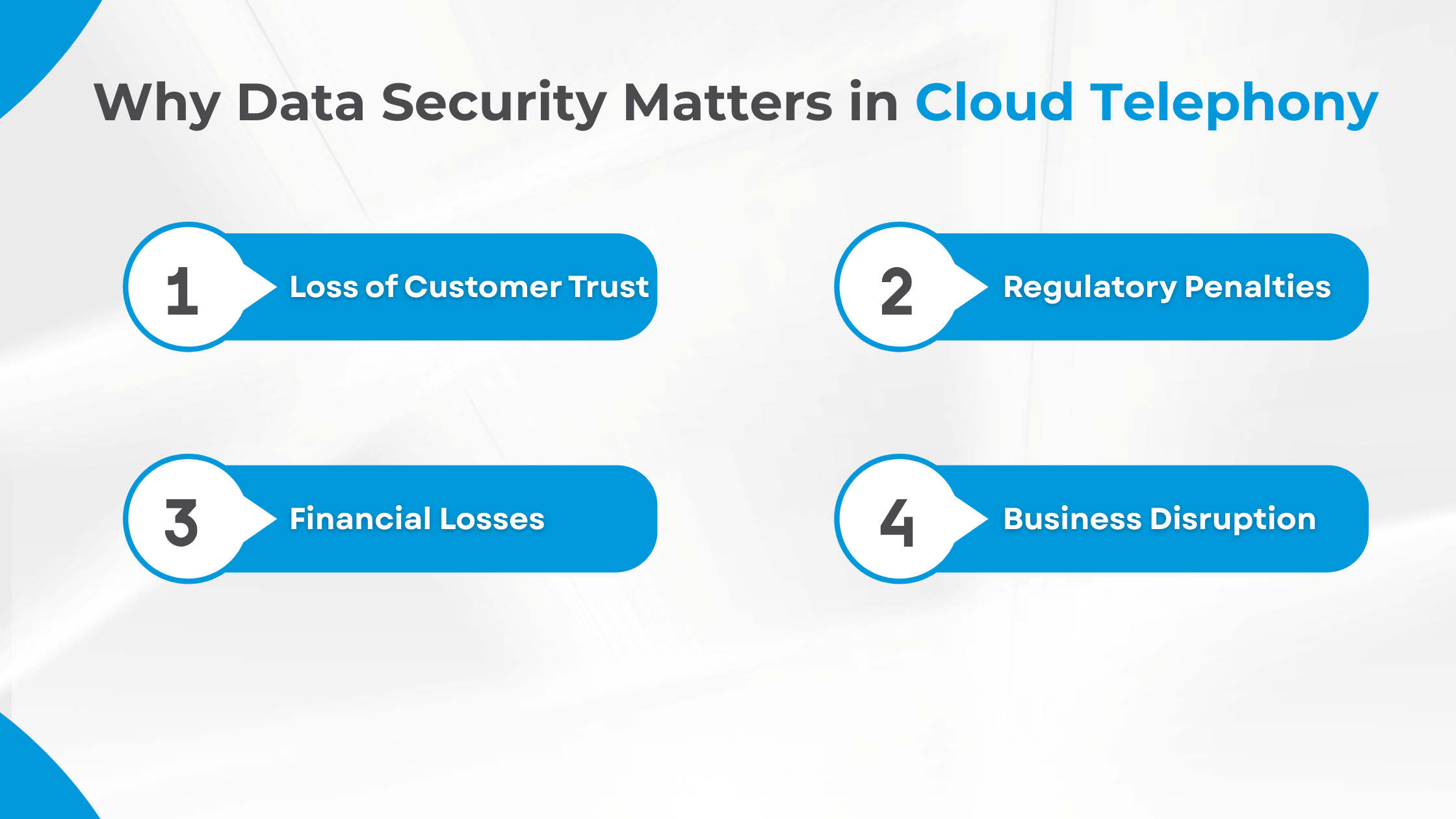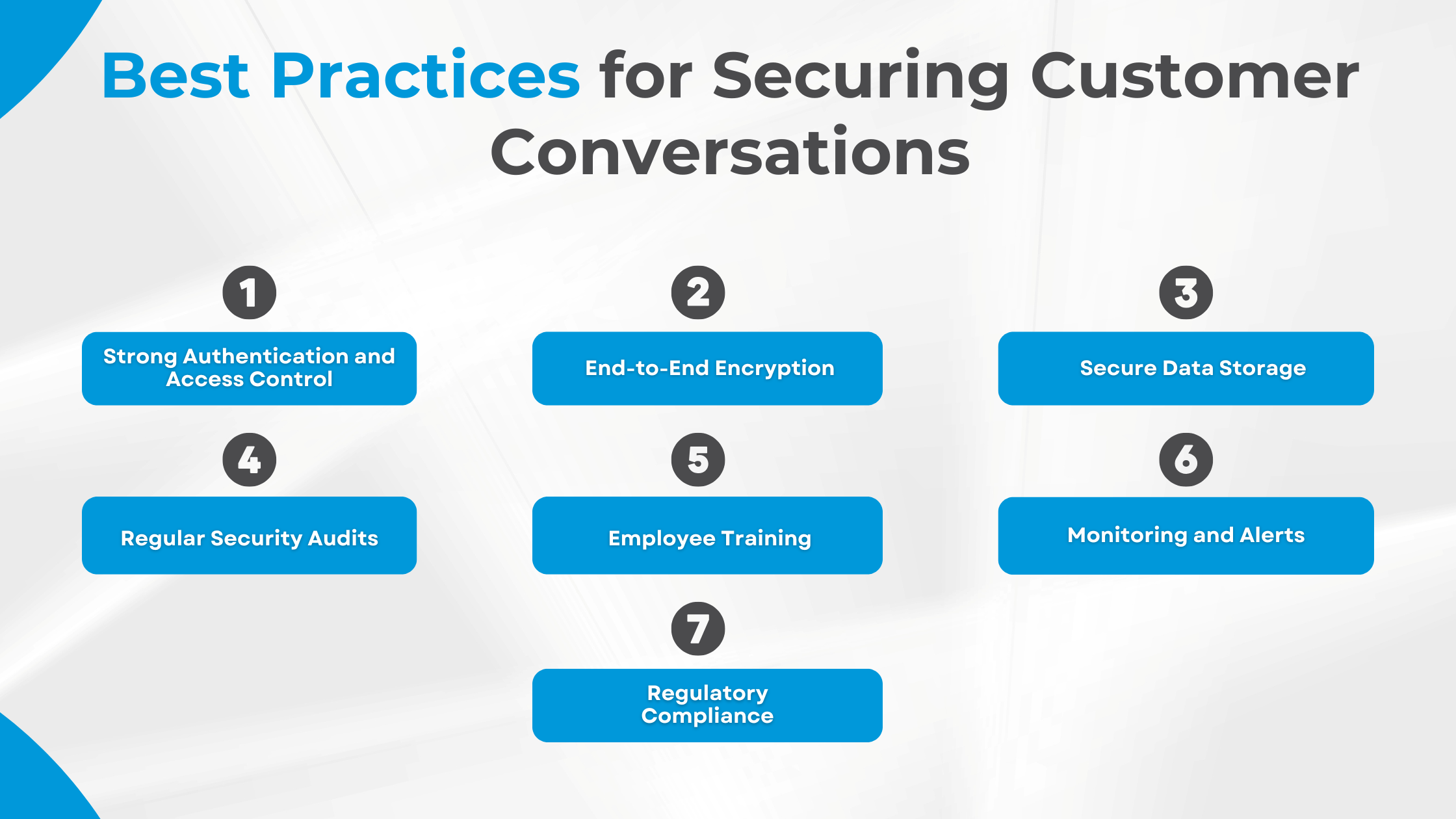Cloud-based communication tools have transformed the way businesses interact with customers. Among these, cloud telephony in India has emerged as a game-changer, offering organizations flexibility, scalability, and cost-efficiency. By replacing traditional phone systems with internet-driven solutions, companies can now streamline customer interactions, track performance, and deliver a seamless experience.
However, with this shift to cloud-driven platforms comes a heightened concern: data security. As customer conversations are increasingly routed through virtual systems, safeguarding sensitive information such as personal details, payment data, and confidential discussions becomes vital. Businesses cannot afford data breaches that may compromise their reputation and erode customer trust.
This blog explores the critical role of data security in cloud telephony, the risks organizations face, and how to protect customer conversations with the right practices and solutions at Kommuno.
Cloud telephony in India refers to a communication system where calls are made, received, and managed through the internet rather than physical hardware-based PBX systems. It uses VoIP (Voice over Internet Protocol) technology, enabling businesses to handle customer calls, SMS, IVR, and call recordings without investing heavily in infrastructure.
With a rapidly expanding digital economy, India has become a hub for startups, SMEs, and enterprises that rely heavily on customer engagement. Whether it’s e-commerce platforms handling thousands of customer queries daily or financial institutions managing secure transactions, cloud telephony provides an efficient and scalable solution.
Some of the benefits of using a Cloud Telephony Solution in India include:
While the advantages are evident, the shift to cloud-based telephony also means organizations must rely on data centers and networks for secure handling of customer conversations. This makes cybersecurity measures a priority.

Customer conversations often involve sharing sensitive information, from order details to financial data. If compromised, this information could lead to identity theft, fraud, or reputational damage. For businesses, the consequences of poor data security include:
Given these risks, businesses must carefully choose the best cloud telephony providers in India that prioritize security.
While cloud telephony is robust and convenient, it is not immune to security threats. Some common risks include:
Hackers may attempt to break into telephony systems to steal customer data or misuse communication lines. Weak passwords or poor authentication methods increase this risk.
Without proper encryption, customer calls can be intercepted during transmission, exposing sensitive details.
Call recordings, voicemails, and logs stored on servers must be securely managed. Poor storage practices can make them vulnerable to breaches.
Fraudsters may target employees through deceptive emails or calls, tricking them into revealing login details or sensitive information.
Not all risks come from outside. Employees with access to customer call data can misuse or leak information if proper monitoring is absent.
With increasing data protection laws in India, businesses must ensure their Cloud Telephony Solution in India complies with legal requirements, failing which they may face fines.

To safeguard customer data, businesses must implement multi-layered security strategies. Here are some essential practices:
Protecting customer conversations begins with restricting access to only authorized users. Cloud telephony in India should implement multi-factor authentication (MFA) and role-based access to ensure sensitive data is secure. Strong passwords, biometric verification, and session timeouts further reduce risks. Choosing Kommuno’s robust authentication systems guarantees that data remains protected against unauthorized access and misuse.
Encryption is critical for protecting sensitive conversations in cloud telephony in India. With end-to-end encryption, customer calls, SMS, and recordings remain secure during transmission and storage. Even if intercepted, encrypted data cannot be read without proper keys. Partnering with the best cloud telephony providers in India ensures advanced encryption protocols are in place, giving businesses peace of mind that all customer communications are safe from unauthorized access.
A reliable cloud telephony solution in India must safeguard stored data like call recordings and logs. Encrypted storage, restricted access, and regular audits reduce exposure to breaches. The best cloud telephony providers in India use secure data centres with redundancy and disaster recovery systems. By ensuring proper storage practices, businesses can protect customer information and maintain compliance with data protection laws, reinforcing trust and reliability in their communication systems.
Continuous evaluation keeps vulnerabilities in check. Regular security audits and penetration tests help businesses identify risks in their cloud telephony solution in India before attackers exploit them. These audits ensure compliance with regulations and strengthen overall defense systems. The best cloud telephony providers in India conduct routine assessments, applying updates and patches promptly. For businesses, consistent auditing ensures their customer conversations remain private, secure, and aligned with industry standards.
Employees play a crucial role in securing customer data. Without proper awareness, they may fall prey to phishing or social engineering attacks. Businesses using cloud telephony in India should regularly train teams on safe practices, secure data handling, and identifying threats. Kommuno often supports training initiatives, ensuring human errors don’t compromise sensitive conversations.
Proactive monitoring is essential for detecting suspicious activities. Advanced cloud telephony solutions in India offer real-time tracking of call logs, login attempts, and system anomalies. Automated alerts notify administrators instantly about potential threats, enabling faster response. The best cloud telephony providers in India provide AI-driven monitoring tools to safeguard conversations. With continuous oversight, businesses can minimize risks, prevent breaches, and assure customers that their data is always protected.
Compliance ensures businesses operate within legal boundaries. In India, data protection laws demand secure handling of customer conversations through cloud telephony solutions. The best cloud telephony providers in India adhere to IT Act guidelines, data localization, and global standards like GDPR or PCI-DSS where applicable. By choosing providers with strict compliance frameworks, businesses not only avoid penalties but also demonstrate a commitment to protecting customer data and building long-term trust.
When selecting a provider, businesses must look beyond basic features and prioritize data protection. The right provider should offer:
Investing in a Cloud Telephony Solution in India that prioritizes strong security measures is not merely optional; it is crucial for maintaining customer trust. Kommuno’s cloud telephony solution offers you that.
The future of cloud telephony in India is closely tied to advancements in cybersecurity and regulatory frameworks. As businesses increasingly rely on digital platforms to manage customer interactions, the demand for secure, scalable, and intelligent communication solutions will only grow.
Artificial intelligence and machine learning will play a central role in strengthening defenses. By analyzing communication patterns, AI-driven tools can quickly detect fraud, block suspicious activities, and prevent unauthorized access. Similarly, blockchain technology may soon be integrated into call records and transaction logs, ensuring data authenticity and tamper-proof documentation.
Another major trend will be the adoption of zero-trust security frameworks, where no user, device, or application is automatically trusted. Instead, continuous authentication and monitoring will reduce insider threats and data misuse.
On the regulatory front, India’s evolving data protection laws will push cloud telephony solution providers in India to implement stricter compliance measures. Data localization, encrypted storage, and transparent handling policies will become standard requirements.
For businesses, the future lies in partnering with the best cloud telephony providers in India who can combine innovation with uncompromising data security. Those who adapt early will gain a competitive advantage by offering safe, reliable, and future-ready customer communication.
The rise of cloud telephony in India has opened up opportunities for businesses to streamline customer conversations, boost efficiency, and support remote work. However, with this convenience comes the pressing responsibility of data security. From encryption and secure storage to employee training and compliance, protecting customer conversations must be a top priority.
When choosing a Cloud Telephony Solution in India, organizations should carefully evaluate providers based on their security protocols, compliance adherence, and data management policies. Partnering with the best cloud telephony providers in India not only strengthens trust but also ensures that businesses can grow confidently in a digital-first world.
By investing in robust security measures today from Kommuno, companies can future-proof their customer communications and build stronger, more reliable relationships with their audience.
Elevate Your Business Game with Kommuno – The best way to stay connected to customers!
Copyright ©2024 All Rights Reserved | Kommuno Technologies Pvt Ltd
Copyright ©2024 All Rights Reserved | Kommuno Technologies Pvt Ltd